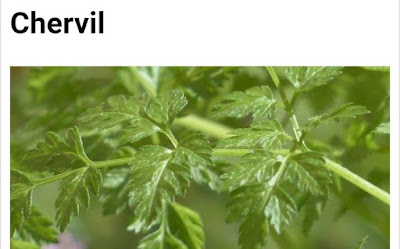Common Names: Chervil, chervel, sweet cicely
The Botanical Name of chervil is Anthriscus cerefolium
Family: Apiaceae
Medicinal Uses: Culinary/Kitchen
Properties: Antioxidant, Carminative
Parts Used: Leaves
Constituents: Volatile oil, flavonoids and coumarins
Habitat: Found in lowland woodlands, open woodlands, woodland borders, thickets, rocky glades, areas adjacent to buildings, and areas along roads and railroads. Chervil is an annual or biennial herb, native of western Asia and south-western parts of Russia, from which it reached the Mediterranean about 300 bc.
Side Effects: There are no real side effects for chervil tea. Pregnant women should be cautious when using it and should ask a doctor. Besides this, chervil is safe to use in any amount as a tea or as part of your diet.
How to Prepare chervil medicine: As tea, tincture or extract. Culinary herb used much like parsley.



